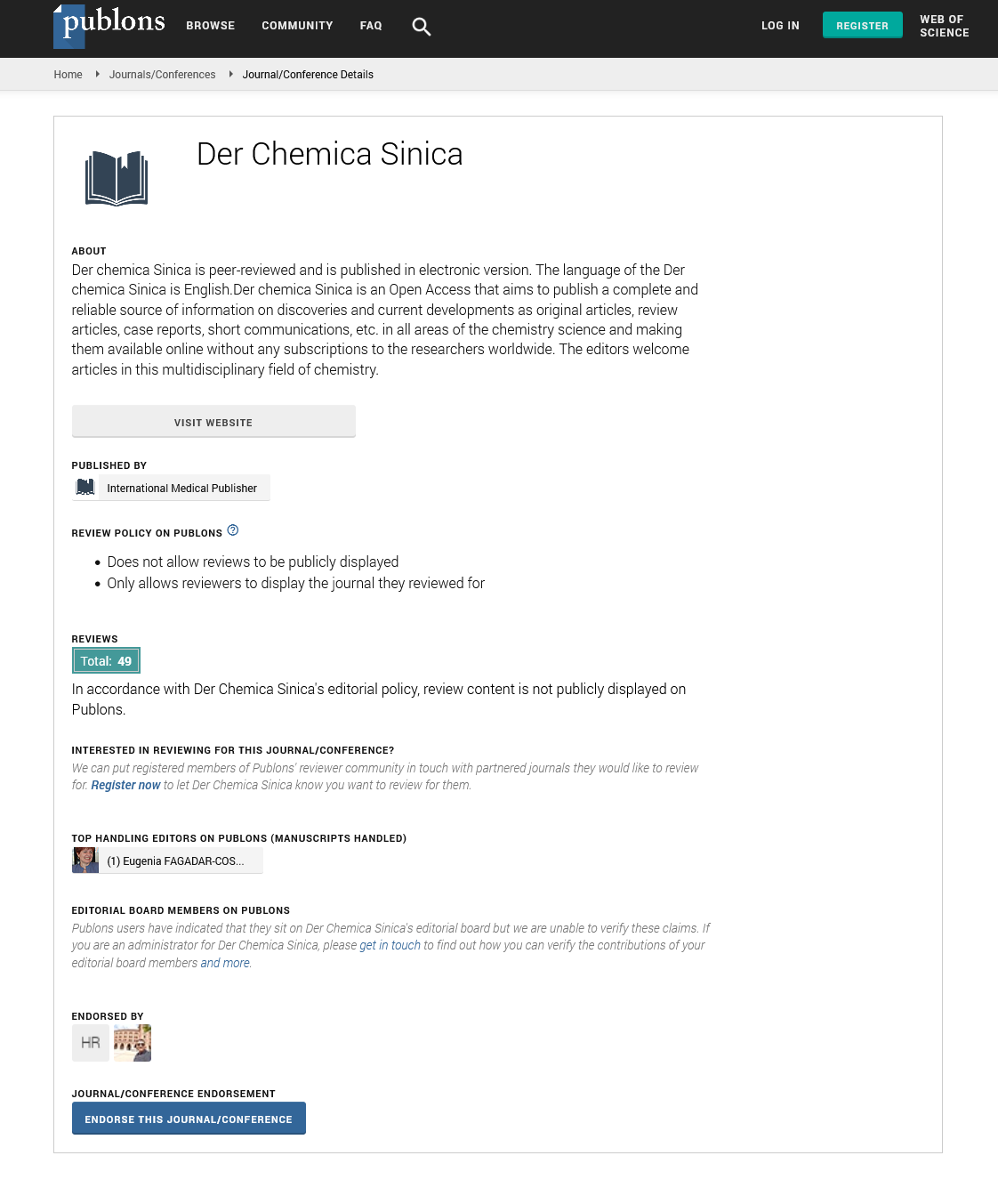ISSN : 0976-8505
Der Chemica Sinica
Abstract
Anticancer potential of metal thiosemicarbazone complexes: A review
Thiosemicarbazones are Schiff based ligands which have gained importance over the decades as potential drug candidates. When coordinated to metals, they have proved as good anticancer, antimicrobial, antioxidant and antiprotozoal agents. Numerous applications of these ligands in the field of Analytical Chemistry have also been reported. The present review aims to summarize some of the recent advances in the design/synthesis of novel substituted metal-ligand thiosemicarbazone complexes with special emphasis on the efficacy of transition metalligand complexes as potential anticancer agents as well as to unravel their possible mode of action on in vitro living systems viz. cell lines as well as a few animal models. Transition-metal based complexes hold several advantages over other metal complexes because of their better acceptability and low toxicity in biological systems. Moreover, the role of transition metals as micronutrients as well as co-factors of several metallo-enzymes in living systems further corroborates the rationale behind synthesis and evaluation of novel transition-metal based thiosemicarbazones complexes for their anticancer effects. After a careful review of the literature available, it has been found that the activity enhancement has been achieved by many possible modifications in the ligand moiety and some of the best modifications have been cited in the review. Future use of substituted thiosemicarbazones as effective anticancer agents would depend on such structural modifications as would afford them better potency against a number of tumors/cancers, together with low toxicity and better solubility, when tested in vivo.
Author(s): Tahmeena Khana, Rumana Ahmad, Seema Joshi and A. R. Khan
Abstract | PDF
Share This Article
Google Scholar citation report
Citations : 6019
Der Chemica Sinica received 6019 citations as per Google Scholar report
Der Chemica Sinica peer review process verified at publons
Abstracted/Indexed in
- Google Scholar
- Open J Gate
- Genamics JournalSeek
- China National Knowledge Infrastructure (CNKI)
- Directory of Research Journal Indexing (DRJI)
- Publons
- MIAR
- International Committee of Medical Journal Editors (ICMJE)
- Serials Union Catalogue (SUNCAT)
- Geneva Foundation for Medical Education and Research
- Secret Search Engine Labs
- Euro Pub
- CAS (Chemical Abstracting Services)
- University of Barcelona
Open Access Journals
- Aquaculture & Veterinary Science
- Chemistry & Chemical Sciences
- Clinical Sciences
- Engineering
- General Science
- Genetics & Molecular Biology
- Health Care & Nursing
- Immunology & Microbiology
- Materials Science
- Mathematics & Physics
- Medical Sciences
- Neurology & Psychiatry
- Oncology & Cancer Science
- Pharmaceutical Sciences
